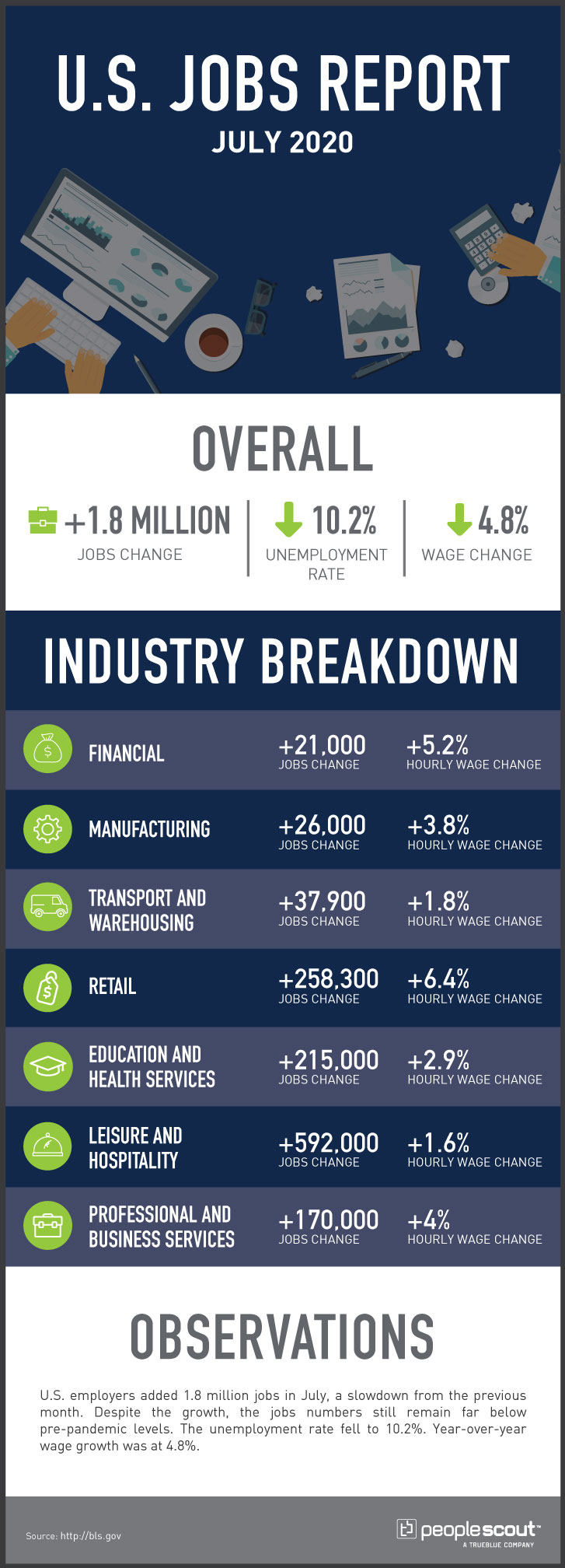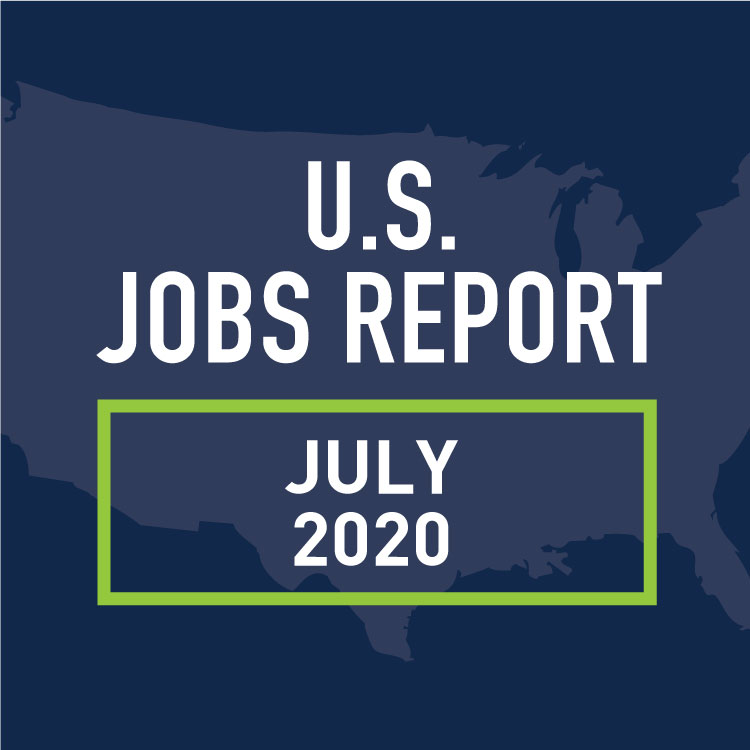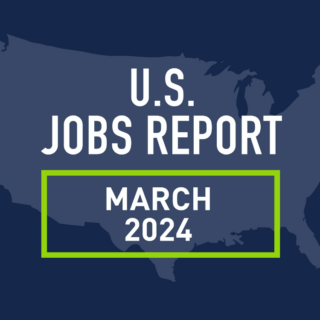U.S. employers added 1.8 million jobs in July, a slowdown from the previous month. Despite the growth, the jobs numbers still remain far below pre-pandemic levels. The unemployment rate fell to 10.2%. Year-over-year wage growth was at 4.8%.

The Numbers
1.8 million: The U.S. economy added 1.8 million jobs in July.
10.2%: The unemployment rate fell to 10.2%.
4.8%: Wages rose 4.8% over the past year.
The Good
July marked the third straight month of job growth, and the unemployment rate fell to 10.2% from nearly 15% in April. The biggest private-sector gains were in leisure and hospitality, retail, education and health services and professional services. The Wall Street Journal reports that the number of people who are temporarily laid-off has continued to fall, indicating that more employers are bringing workers back.
The Bad
While the job gains are good news, July’s growth lagged significantly behind the 4.8 million jobs added in June, suggesting the recovery is slowing. Additionally, the gains over the past three months only account for less than half of those lost to the pandemic. Currently, 16.3 million people are still unemployed and looking for work. The Washington Post reports that hiring slowed as coronavirus infections began to rise again, and the economic recovery was weakest in the states with the highest numbers of new coronavirus infections.
The Unknown
Several factors could have a significant impact on the economy. First, the U.S. has had more than 5 million confirmed cases of the virus, with around 50,000 added each day. The New York Times reports that the longer the crisis continues, the greater the impact will be for businesses, especially small businesses.
Also, the additional $600 in unemployment payments expired at the end of July, and congress has yet to agree on an additional relief package. It’s not clear yet how much those payments were boosting the economy and what the impact of losing them will be.

